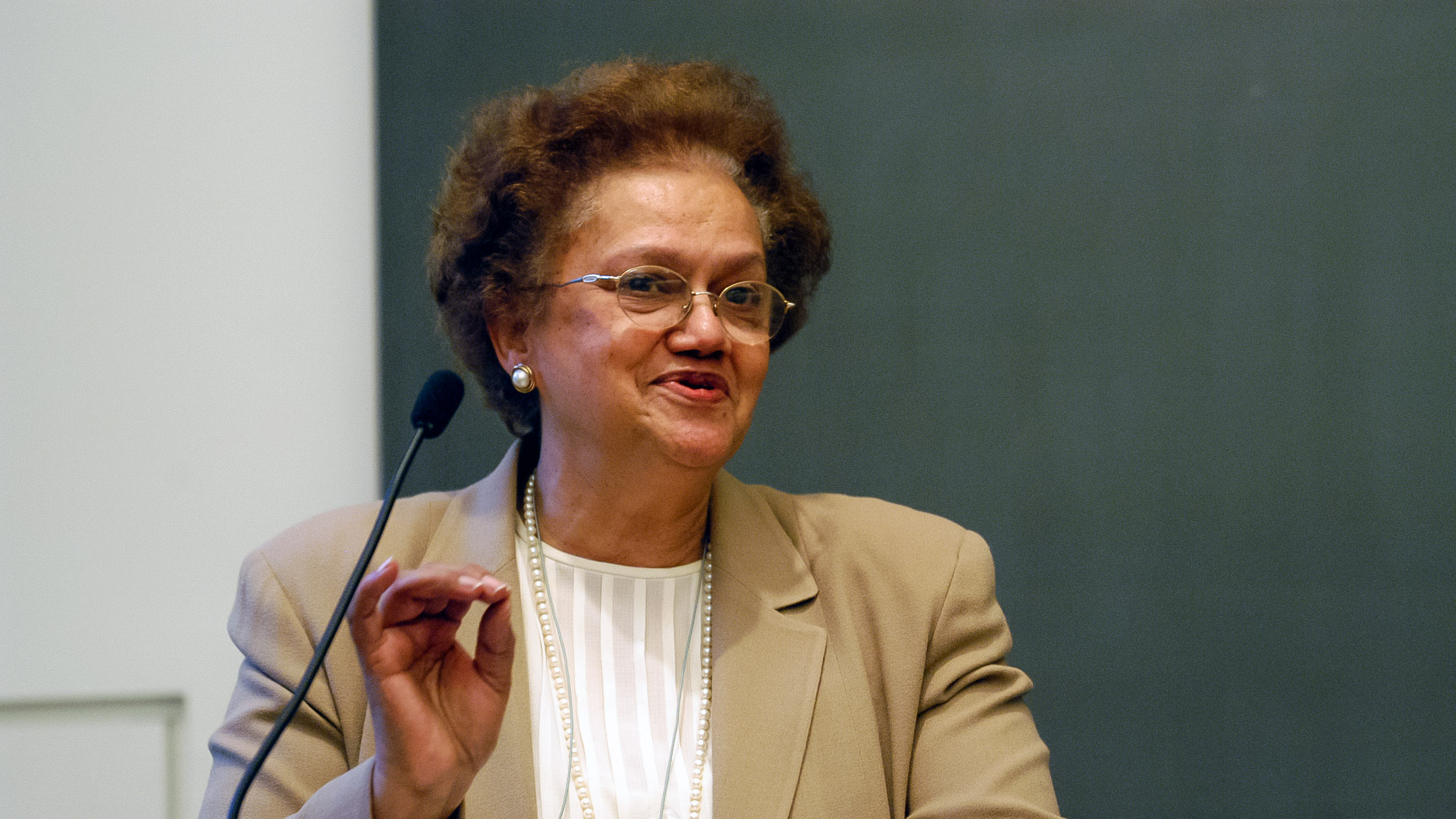Shirley McBay, 1935-2021
The onetime MIT dean fought to bring more students from underrepresented groups into STEM fields.

Mathematician Shirley McBay, MIT’s dean of student affairs from 1980 to 1990 and a leading advocate for diversity at the Institute, died November 27 at 86.
McBay led efforts to address obstacles to success for MIT students from underrepresented or underserved communities. A 1986 report titled “The Racial Climate on the MIT Campus” was produced under her direction, and recommendations from it led to the Quality Education for Minorities (QEM) project. She also helped found the MIT Public Service Center, now known as the PKG Center.
As she once told a congressional panel, “The worst intellectual crime one can commit is to prejudice one’s results, to prejudge how something will turn out. However, this is precisely what we are doing when we fail—from elementary school to graduate school—to encourage women and minorities to enter the fields of science and engineering.”
In a series of oral histories from Black students, faculty, and staff at MIT, McBay related how as a fourth grader in segregated Georgia schools, she competed in math against high school students, standing on a chair so she could reach the chalkboard.
After earning a degree in chemistry at just 19, she taught at Spelman College, to which she returned as a professor and administrator with a PhD in mathematics from the University of Georgia. Following her years at MIT, McBay founded the QEM Network in Washington, DC, serving as its president for two decades. The organization advocates for female students and students of color.
“Dr. McBay’s commitment to removing barriers to success, providing an excellent education for all students, and encouraging students to see their stake in the world and to pay it forward are hallmarks of her contributions to the MIT community,” says Chancellor Melissa Nobles. “We are indebted to and inspired by her.”
Keep Reading
Most Popular
Large language models can do jaw-dropping things. But nobody knows exactly why.
And that's a problem. Figuring it out is one of the biggest scientific puzzles of our time and a crucial step towards controlling more powerful future models.
The problem with plug-in hybrids? Their drivers.
Plug-in hybrids are often sold as a transition to EVs, but new data from Europe shows we’re still underestimating the emissions they produce.
How scientists traced a mysterious covid case back to six toilets
When wastewater surveillance turns into a hunt for a single infected individual, the ethics get tricky.
Google DeepMind’s new generative model makes Super Mario–like games from scratch
Genie learns how to control games by watching hours and hours of video. It could help train next-gen robots too.
Stay connected
Get the latest updates from
MIT Technology Review
Discover special offers, top stories, upcoming events, and more.